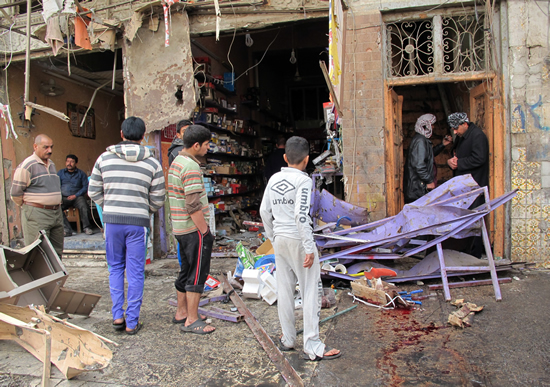Who is the United States’ resurgent adversary in Iraq, and what do they want? A panel convened at The Heritage Foundation yesterday posed these and other questions about the policy implications for America of the recent seizure of the Iraqi towns of Fallujah and Ramadi by al-Qaeda fighters.
The terrorist network’s renewed threat to the stability of Iraq and the region has reached a boiling point, speakers at the event agreed.
“I disagree that the world changed on 9/11,” Douglas Streusand, a professor at the Marine Corps Command and Staff College, said of al-Qaeda’s 2001 terrorist attacks on America. “On 9/11 we were forced to realize that it had changed. And that we have realized that it ha[s] changed strengthens us and weakens our adversaries. But it is always difficult to maintain vigilance without new emergencies to drive it.”
Streusand and other panelists said the Obama Administration as well as the American public should realize that the terrorist threat out of Iraq and the surrounding region is still ominously real — or as Streusand characterized it, “far too dangerous for the interests of the civilized world.”
On the panel were Marine Gen. James T. Conway, who also gave keynote remarks; Jessica D. Lewis, research director at the Institute for the Study of War; and James Phillips, Heritage’s senior research fellow for Middle Eastern affairs.
“Nature abhors a vacuum, but al-Qaeda loves a vacuum,” Phillips said. “It has surged in strength on both sides of the Iraq-Syria border, in large part to fill vacuums of authority created by the dysfunctional politics in these two countries.”
And the enemy of the U.S. is not simply al-Qaeda, Streusand said.
“I argue that our enemy is an ideology, and a network of networks. I refer to the ideology as totalitarian Islamism. And [I] define it as an amalgam of the persistent dissident tradition of political action in the name of Islam that has existed throughout Islamic history.”
With inadequate U.S. aid to Iraq, Streusand said, this totalitarian Islamist network will continue to gain power and endanger America.
“The bottom line,” Phillips said, “is the administration must pay more attention to what’s going on in Iraq and stop looking at the conflict inside that country through the lens of domestic U.S. politics. Start seeing it in terms of long-term U.S. security interests.”
The Obama White House “must stop talking about ending a war… and start thinking about how to help Iraqis win this war,” Phillips added. “The United States’ adversary is a large network of Islamist extremists, who seek to regain their superiority through the means of a global totalitarian regime.”
This story was produced by The Foundry’s news team. Nothing here should be construed as necessarily reflecting the views of The Heritage Foundation.
